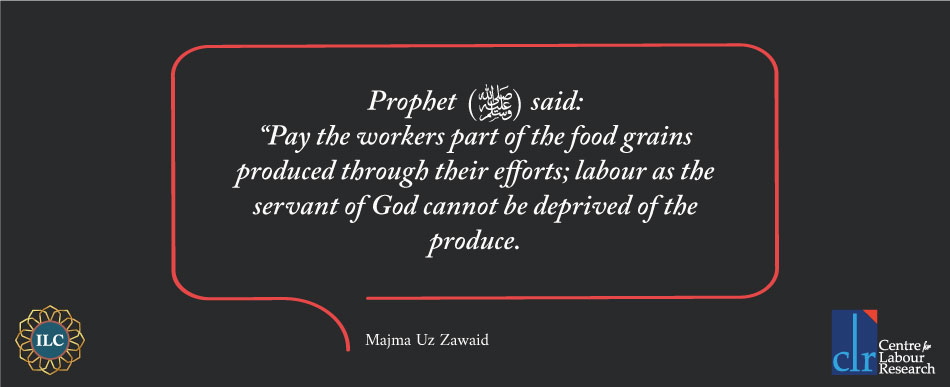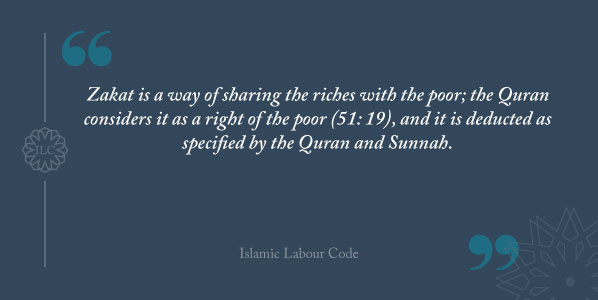Profit Sharing

The proponents of Islamic economic and finance systems have written extensively on the establishment of profit sharing or stock ownership schemes in firms.[1] We find that Islam allows joint ventures between two parties where one party provides the capital and the other provide labour or services, and profits are divided as agreed beforehand (called Modaraba, it is a specific form of partnership or Mosharakah).[2] This form of a business partnership is also referred to as Commenda. It can also include labour-only partnerships where the only investment is the skills that labourers have.[3] Chapra (1983) has argued that “profit may be divided into two parts: bonuses and other benefits, where the latter can be used for improving working conditions and providing training to workers, allowance for children’s education and food subsidies”. These benefits can also include retirement and health benefits, as well as paid vacations, which can positively affect workers’ motivation and job satisfaction.
We find explicit references in ahadith of the Prophet (ﷺ) in which employers are required and persuaded to share the produce and profits with the workers. In one instance, it is related “If your servant prepares food for you and brings it to you, he has undergone the torment and agony of smoke and heat. You should, therefore, ask him to sit and participate in the food. If you have guests, then reserve some of the food for the servant, at least a morsel or two”,[4] and at another place, the Prophet (ﷺ) said: “Pay the workers part of the food grains produced through their efforts; labour as the servant of God cannot be deprived of the produce”.[5] In both of the above cases, we find a simple and straightforward rule that a firm has to share the profits with its employees. The idea of a bonus is enshrined in the above-quoted ahadith.[6] We also infer another principle from the first hadith that if the employer is not earning much profit, he should still give workers a share in the profits.

Moreover, as argued by Zulfiqar (2007), the concept of profit sharing is also present in the obligatory pillar of Zakat (poor tax). Zakat is a way of sharing the riches with the poor; the Quran considers it as a right of the poor (51:19), and it is deducted as specified by the Quran and Sunnah. The more a person contributes to society through labour or capital, the less he or she gets taxed, and less profit is shared among the masses.
[1] Chapra, M. U. 1983. Islamic Work Ethics. Al-Nahdah: Muslim News and Views 3 (4):1–7.
[3] Udovitch, A. L. 2003. Labor Partnerships in Early Islamic Law. In Manufacturing and Labour, ed. M. G. Morony, 307–23. Aldershot, Hant, England; Burlington, VT: Ashgate.
[4] Sahih Bukhari. A similar hadith is found in Sahih Bukhari: 2557 and 5460.
إِذَا أَتَى أَحَدَكُمْ خَادِمُهُ بِطَعَامِهِ، فَإِنْ لَمْ يُجْلِسْهُ مَعَهُ فَلْيُنَاوِلْهُ أُكْلَةً أَوْ أُكْلَتَيْنِ، أَوْ لُقْمَةً أَوْ لُقْمَتَيْنِ، فَإِنَّهُ وَلِيَ حَرَّهُ وَعِلاَجَهُ
[5] Majma Uz Zawaid
[6] The Messenger of Allah (ﷺ) said, “When your servant brings food for you and you do not seat him with you, you should at least give him a morsel or two out of it because he has prepared it himself”. (Riyad as-Salihin: 1361)
إذا أتى أحدكم خادمه بطعامه، فإن لم يجلسه معه فليناوله لقمة أو لقمتين أو أُكلة أو أُكلتين فإنه ولي علاجه
